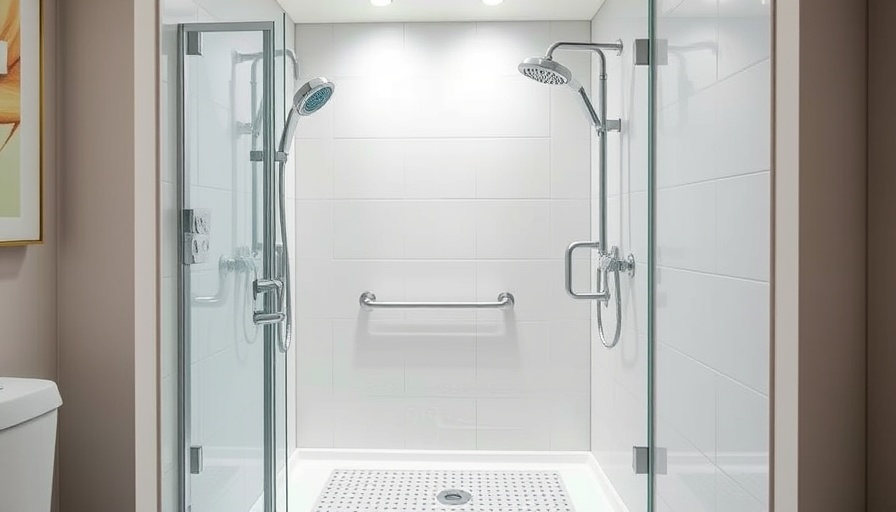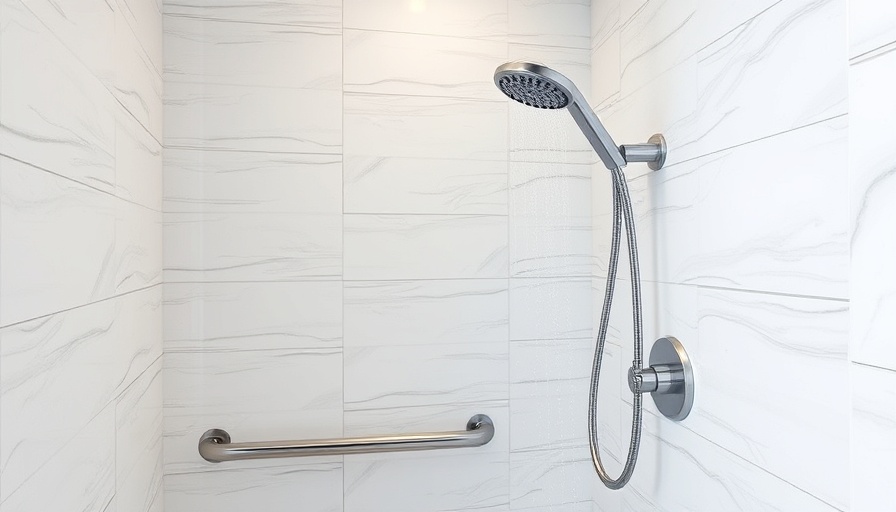
The Importance of Roll-In Showers for Independent Living
In an era where inclusivity is paramount, understanding the Americans with Disabilities Act (ADA) regulations for roll-in showers is essential. For many individuals, particularly those aged 55 and older, these showers represent more than just a feature; they are symbolic of independence and dignity. Roll-in showers facilitate access for wheelchair users and those with limited mobility, enabling them to maintain their hygiene routines without needing assistance.
Navigating ADA Standards: What You Need to Know
Since its enactment in 1990, the ADA has laid down critical guidelines to eliminate barriers faced by people with disabilities. Knowing these regulations is crucial for homeowners and builders alike, especially in Ocean County. For instance, ADA requirements for roll-in showers stipulate minimum dimensions—60 inches in width and 30 inches in depth—ensuring a smooth and safe entry point for users. The floor should be both slip-resistant and gently sloped to minimize water accumulation, enhancing safety in frequently wet environments.
Construction Essentials: Incorporating Key Features
Safety is of the utmost importance when considering roll-in showers. As such, grab bars must be thoughtfully positioned at a height between 33 and 36 inches to provide maximum support. These bars should be securely mounted and able to bear weight, offering a reliable handhold for users as they navigate their bathrooms. Furthermore, shower controls must accommodate varying needs and should be operable from a seated position, utilizing lever-style fixtures that require minimal strength.
Beyond Compliance: The Broader Benefits of Accessibility
Integrating roll-in showers into home designs not only adheres to legal standards but significantly enriches the user experience. The primary advantage is the enhancement of quality of life for individuals with mobility challenges. With the ability to take a shower independently, individuals retain their dignity and autonomy during essential self-care routines.
Moreover, homes equipped with accessibility features often gain increased market value—particularly relevant in Ocean County, where the demographic is rapidly aging. Properties that prioritize accessibility features resonate with potential buyers, making them more desirable in a competitive market.
Real Stories: Impact on Lives in Ocean County
“Having a roll-in shower has made my life so much easier— I can now shower without any worries. It’s incredible how something as basic as this can improve my daily routine.”
- Local Ocean County resident, Mary Johnson
This sentiment is echoed by many residents who have seen firsthand how roll-in showers can drastically improve daily living experiences. The emotional relief of accessibility cannot be overstated; it encourages not just functionality but also a sense of normalcy in home life.
Conclusion: Making the Case for Change
As we reflect on the importance of ADA regulations, it becomes clear that roll-in showers are more than just compliance; they are vital components of a supportive living environment. For builders and homeowners alike, incorporating these features into homes is an essential step towards fostering independence and ensuring that everyone, regardless of ability, can lead a full life.
If you’re considering a bathroom renovation project, now is the perfect time to prioritize accessibility features like roll-in showers. Not only will you enhance the quality of life for your loved ones, but you’ll also protect the value of your property in an evolving market.
 Add Row
Add Row  Add
Add 




 Add Row
Add Row  Add
Add 

Write A Comment